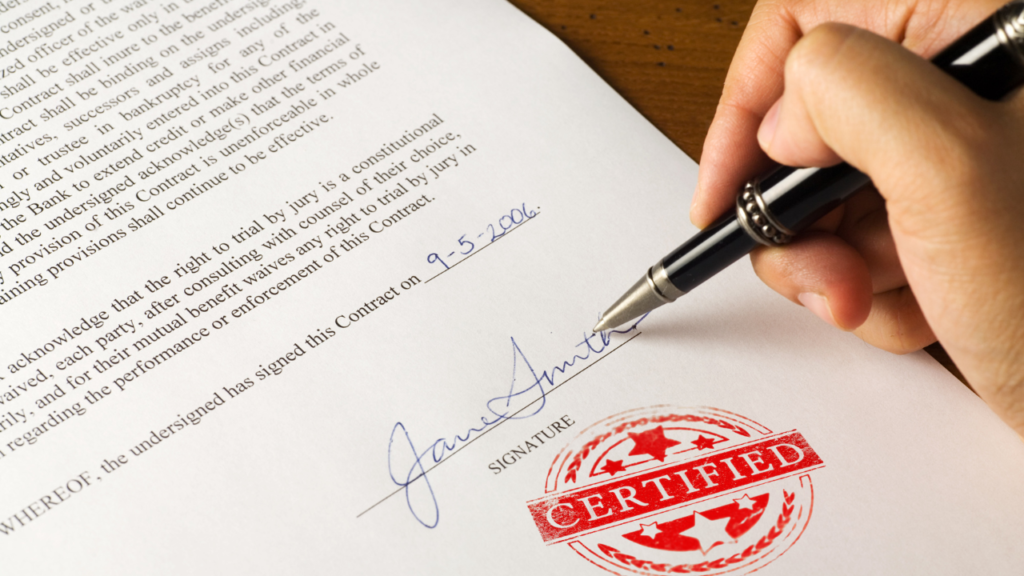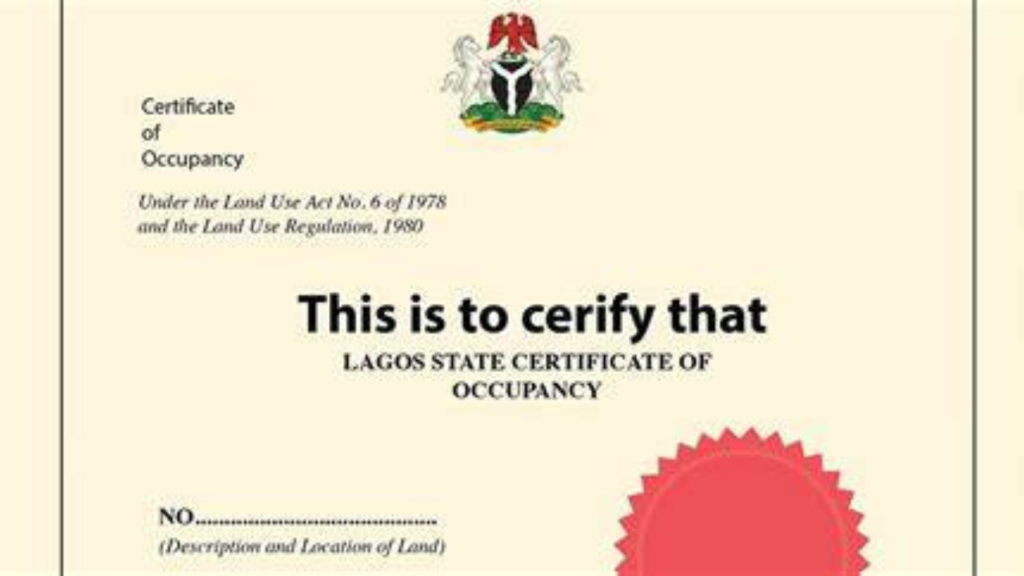When dealing with property transactions in Nigeria, two key legal documents often come up: a Deed of Assignment and a C of O (certificate of occupancy).
While both are essential for land ownership and transactions, they serve different purposes.
Understanding the difference between these two documents is crucial for landowners, buyers, and investors to ensure proper land documentation and legal protection.
Table of Contents
Toggle
What is a Deed?

A Deed is a legally binding document that records the transfer of ownership of a property from one party to another.
The most common type of deed in Nigeria is the Deed of Assignment, which is used in the sale of land or property.
See related – Deed of Assignment: meaning and it’s importance
Key Features of a Deed (Deed of Assignment)
- It transfers ownership rights from the seller (assignor) to the buyer (assignee).
- It includes details such as:
- Names of the seller and buyer
- A description of the property
- The agreed purchase price
- Signatures of both parties and witnesses
- It must be registered at the land registry for legal recognition.
- It serves as proof that ownership has changed hands but does not grant new ownership rights from the government—it only records a private transaction.
What is a Certificate of Occupancy (C of O)?

A Certificate of Occupancy (C of O) is an official document issued by the government that grants an individual or entity the legal right to occupy and use a piece of land for a period of 99 years (as stipulated by the Land Use Act of 1978).
It is usually issued when the land is being allocated for the first time.
See related – C of O: meaning and how to get it in Nigeria
Key Features of a C of O
• It is issued by the state government to recognize a person as the legal occupant of the land.
• It confirms that the land is not under government acquisition and is free for use.
• It includes details such as:
• The owner’s name
• The size and location of the land
• The permitted land use (residential, commercial, etc.)
• The issuing authority’s seal and signature
• It is necessary for obtaining other land documents, such as a Governor’s Consent and land title registration.
Major Differences Between a Deed of Assignment and a C of O
The Deed of Assignment is a legal document that records the transfer of ownership between private parties while the C of O is a government-issued document that grants the legal right to occupy and use land.
The Deed of Assignment confirms the transfer of ownership from one person to another while the C of O confirms government recognition of ownership and land use rights.
In the Deed of Assignment, Private parties involved in a land transaction while the state government is involve in the C of O.
The Deed of Assignment is valid indefinitely if properly registered while the C of O is usually valid for 99 years, after which renewal is required.
The Deed of Assignment must be registered at the land registry to be officially recognized while the C of O is automatically recognized as a government-issued title.
See also – How do I Obtain Building Permits in Nigeria?
Which One is More Important?
Both documents serve different but essential roles in land ownership and transactions.
- If you buy land from an individual, you need a Deed of Assignment to prove the transfer of ownership.
- If you are getting land directly from the government, you need a Certificate of Occupancy to confirm your legal right to the land.
- If you buy land from someone who already has a C of O, you will need a Deed of Assignment and then process a Governor’s Consent to legally transfer the title to your name.
Conclusion
While a Deed of Assignment confirms ownership transfer between private parties, a Certificate of Occupancy confirms government recognition of ownership rights.
Both documents are essential for landowners in Nigeria, and anyone involved in land transactions should ensure proper legal documentation to avoid disputes or government acquisition issues.
For proper land documentation and registration, consulting a property lawyer or real estate expert is highly recommended.










